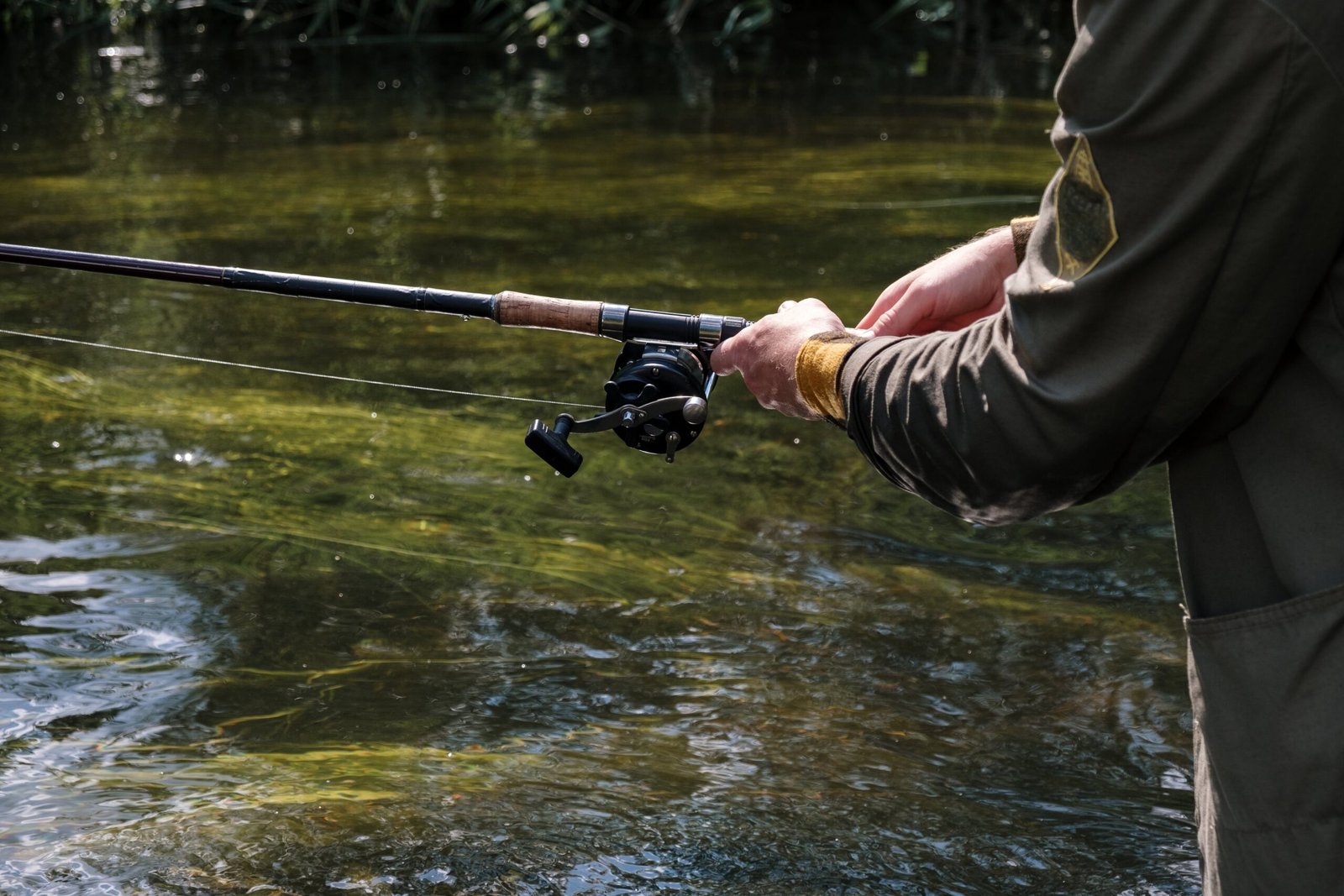How To Choose The Right Fishing Gear
One of the most important aspects of fishing is having the right gear. Whether you are a beginner or an experienced angler, choosing the right fishing gear can make all the difference in your fishing experience. With so many options available on the market, it can be overwhelming to know where to start. However, with a little knowledge and research, you can choose the perfect gear that suits your fishing needs and preferences.
In this guide, we will discuss the key factors to consider when choosing fishing gear, including the type of fish you are targeting, the location you will be fishing in, and your budget. We will also cover essential items such as rods, reels, lines, lures, bait, and accessories. By the end of this guide, you will have the knowledge to select the right fishing gear for your next angling adventure.
Factors to Consider in Choosing Fishing Gear
When it comes to selecting fishing gear, there are a few key factors that you should consider. These include:
The type of fish you are targeting
The type of fish you are targeting is an essential factor to consider when choosing fishing gear. Different types of fish require different techniques and equipment, so it’s crucial to know what kind of fish you will be going after. For example, if you’re planning on catching small panfish, a lightweight rod and reel would suffice.
However, if you’re looking to catch larger game fish like bass or salmon, you would need a more heavy-duty rod and reel. It’s also important to consider the behavior and habitat of your target fish, as this can determine the type of bait and lures you should use.
The location you will be fishing in
The location you will be fishing in is another crucial factor to consider when choosing fishing gear. Different bodies of water, whether it’s a lake, river, or ocean, can have varying conditions and require different equipment. For example, if you’re fishing in a small stream with tight spaces, a shorter rod would be more suitable compared to open water where you can use a longer rod for casting distance.
It’s also essential to consider the water depth and clarity, as this can determine the type of bait and lures you should use. Additionally, if you’re planning to fish in saltwater, you would need gear that is corrosion-resistant.
Your budget
Lastly, it’s important to consider your budget when choosing fishing gear. It’s easy to get carried away with fancy equipment, but it’s essential to stick to a budget that works for you. The good news is, there are plenty of affordable options available on the market that still offer good quality.
One tip is to invest in essential items such as a good rod and reel while compromising on accessories like fishing hats or clothing. It’s also worth considering second-hand gear or waiting for sales to save some money. Remember, the most expensive equipment doesn’t always guarantee the best fishing experience.
Essential Fishing Gear Items
To help you get started, here are some of the essential items you will need for your fishing gear arsenal:
Rods
Rods come in different lengths, materials, and actions (how much the rod bends), and it’s important to choose the right one for your target fish and fishing location. Longer rods are generally better for casting distance, while shorter rods offer more control in tighter spaces. Materials like graphite and fiberglass have different levels of sensitivity and strength, so consider what will work best for you.
Reels
Reels come in many varieties, such as spinning, baitcasting, and spincasting reels. Each type has its own advantages and is suitable for different types of fishing. For example, spinning reels are versatile and easy to use, while baitcasting reels offer more control for casting accuracy.
Lines
When choosing a fishing line, consider the weight (pound test), material (monofilament, fluorocarbon, or braided), and color. The line weight should match the rod and reel specifications, while the material can affect sensitivity and visibility in water. Color also plays a role in visibility to fish, so consider the water clarity before selecting a line.
Lures and Bait
Lures and bait are essential for attracting fish, and there are endless options available. Consider the type of fish you’re targeting, their behavior, and the water conditions to choose the right lure or bait. It’s also a good idea to have a variety of options on hand to switch up your technique if needed.
Accessories
Accessories such as fishing hats, sunglasses, tackle boxes, and fishing nets can enhance your overall fishing experience. These items provide protection from the sun, organize your gear, and help with landing fish. However, they are not essential items and can be compromised on to fit your budget.
How much fishing gear do you need?
The amount of fishing gear you need will depend on your personal preferences and the type of fish you’re targeting. If you’re a beginner, it’s best to start with the essentials and gradually add more equipment as needed. It’s also important to consider how much gear you can comfortably carry to your fishing location.
It’s always better to have a few quality items than a large quantity of cheap gear. Remember, you can always borrow or rent equipment if needed for specific fishing trips.
How much Money do you need to spend on fishing gear?
The amount of money you should spend on fishing gear will vary depending on the type of equipment and your budget. As mentioned earlier, it’s important to invest in essential items like a good rod and reel while compromising on accessories. It’s also worth considering purchasing second-hand gear or waiting for sales to save some money.
Ultimately, the amount you spend on fishing gear should be within your means and dependent on how often you plan to go fishing. It’s always best to start with a budget-friendly approach and gradually upgrade as needed. Remember, the most expensive equipment doesn’t always guarantee the best fishing experience.
Tips for save money on fishing gear
There are several ways to save money when purchasing fishing gear:
- Set a budget and stick to it.
- Look for sales, discounts, or second-hand options.
- Invest in essential items first and compromise on accessories.
- Borrow or rent equipment for specific fishing trips.
- Take care of your gear to make it last longer.
- Consider purchasing multipurpose equipment, such as a rod and reel combo.
- Don’t get caught up in buying the latest and most expensive gear – focus on what works for you.
FAQs
Do I need to spend a lot of money on fishing gear?
No, you can find affordable options that still offer good quality. It’s important to consider your needs and budget before making any purchases.
How do I know which type of fishing gear is right for me?
Consider factors such as the type of fish you’re targeting, the location you’ll be fishing in, and your personal preferences. It’s also helpful to seek advice from experienced anglers or do some research before making a decision.
Can I save money by purchasing second-hand gear?
Yes, you can often find gently used fishing gear at a lower cost compared to buying brand new equipment. Just make sure to thoroughly inspect the items and check for any damages before purchasing.
Conclusion
Choosing fishing gear can seem overwhelming, but it’s important to consider your budget and needs before making any purchases. Remember to invest in essential items first and compromise on accessories if needed. You don’t need the most expensive equipment for a successful fishing experience – focus on what works for you and enjoy the sport!
Also, don’t forget to take care of your gear and consider cost-saving options like purchasing second-hand or waiting for sales. With the right equipment, you’ll be ready to hit the water and reel in some fish. Happy fishing!




What do you think?
It is nice to know your opinion. Leave a comment.